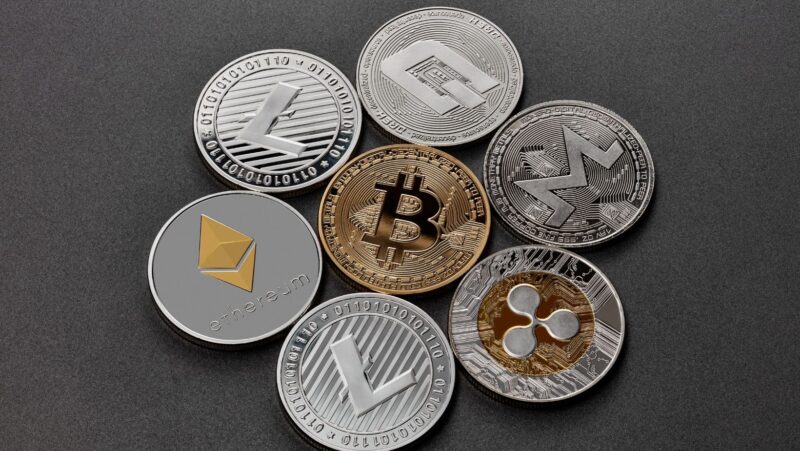
As cryptocurrencies revolutionize industries worldwide, their influence on online gambling is profound. Crypto casinos—platforms that enable gambling using cryptocurrencies—have gained traction for their transparency, security, and anonymity. Yet, despite their appeal, these casinos face significant legal and regulatory challenges that affect operators and players alike. Understanding these obstacles is crucial for anyone engaged in this innovative gambling ecosystem.
The Current State of Crypto Casinos
Crypto casinos operate in a decentralized environment, often leveraging blockchain technology for transparency and provably fair gaming. Players appreciate the speed and anonymity of transactions, but these same features have made regulators cautious. The global nature of cryptocurrency creates jurisdictional challenges that make regulatory compliance a maze for casino operators.
For a curated list of trusted crypto casinos that prioritize transparency and security, visit Crypto Casinos List.
The Absence of Universal Regulation
One of the biggest hurdles crypto casinos face is the lack of a unified regulatory framework. Each country has its own approach to online gambling and cryptocurrency, leading to inconsistent legal requirements.
- Jurisdictional Complexity: While countries like Malta and Curacao offer licenses for online gambling, the inclusion of cryptocurrency often requires additional scrutiny. In contrast, countries like China and India maintain strict bans on gambling, leaving crypto casinos in a legal gray zone.
- Cross-Border Operations: The global reach of cryptocurrencies makes it challenging for operators to ensure compliance with every country’s laws. This can lead to disputes, fines, or even shutdowns if an operator unknowingly violates local regulations.
Operators need to carefully research the regulatory environment of their target markets to avoid costly legal issues.
Cryptocurrencies and Legal Ambiguities
Cryptocurrencies themselves remain a legal enigma in many jurisdictions, adding another layer of complexity for crypto casinos.
- Unclear Classification: Cryptocurrencies are classified differently across countries—some as assets, others as currencies or securities. This inconsistency affects how they’re taxed and regulated within gambling operations.
- Licensing Challenges: Traditional gambling licenses often don’t account for cryptocurrency-based operations. Without clear licensing frameworks, many crypto casinos operate without proper oversight, raising concerns about their legitimacy.

Combatting Money Laundering and Fraud
Crypto casinos, like other platforms that handle cryptocurrencies, are prime targets for illicit activities.
- AML (Anti-Money Laundering) Concerns: The pseudonymous nature of cryptocurrency transactions makes them susceptible to abuse by bad actors. Regulators demand robust KYC (Know Your Customer) protocols, which many crypto casinos lack.
- Fraud Risks: Unregulated crypto casinos are sometimes used as fronts for scams, where players lose funds with no recourse. This undermines trust in the industry and deters new users.
Implementing strict KYC and AML measures is critical for building credibility and avoiding legal repercussions.
Ensuring Player Protection and Responsible Gambling
Traditional online casinos are subject to strict regulations to safeguard players, including measures to prevent fraud, addiction, and exploitation. Crypto casinos, however, often operate outside such frameworks.
- Lack of Oversight: Players may encounter unfair practices, such as rigged games or withheld winnings, in unregulated crypto casinos.
- Responsible Gambling Challenges: The anonymity of cryptocurrencies makes it difficult to monitor and enforce responsible gambling practices, such as deposit limits or self-exclusion options.
Players should prioritize licensed crypto casinos that adhere to responsible gambling standards.
Taxation Complexities
The decentralized nature of cryptocurrencies complicates the taxation of gambling revenue and winnings.
- Tax Obligations for Players: In many jurisdictions, gambling winnings are taxable. For crypto casinos, players must determine whether their earnings are subject to gambling taxes, capital gains taxes, or both.
- Operator Tax Compliance: Casinos accepting cryptocurrencies must navigate the challenge of reporting transactions accurately to meet tax obligations.
Clear tax reporting guidelines for players and operators can foster trust and ensure compliance with local laws.
The Push for Regulation: Opportunity and Risk
As crypto casinos grow in popularity, governments are increasingly exploring ways to regulate them. However, the impact of regulation can vary.
- Benefits of Regulation: A clear regulatory framework can legitimize crypto casinos, protect players, and attract mainstream adoption. For example, jurisdictions like Malta are exploring regulations tailored to blockchain-based casinos.
- Risks of Overregulation: Excessive restrictions could stifle innovation and drive crypto casinos underground, exacerbating the very issues regulation seeks to resolve.

Striking a balance between innovation and regulation will be essential for the future of crypto casinos.
Tips for Players: Staying Safe in the Crypto Casino World
While operators navigate complex legal landscapes, players must also take precautions to ensure their safety:
- Research Licensing: Choose casinos that are licensed by reputable authorities and compliant with relevant regulations.
- Check Reviews: Look for reviews and testimonials to gauge the casino’s reputation.
- Verify Security Measures: Ensure the casino employs blockchain technology for provably fair games and secure transactions.
- Understand Local Laws: Be aware of the gambling and cryptocurrency regulations in your country to avoid legal complications.
The Future of Crypto Casino Regulation
The legal and regulatory challenges facing crypto casinos are a microcosm of the broader struggle to integrate cryptocurrency into traditional financial and legal systems. Governments, operators, and players all have roles to play in navigating this evolving landscape.
For operators, compliance with emerging regulations and a commitment to transparency will be key to earning trust and legitimacy. Players, meanwhile, should prioritize safety by choosing reputable casinos and understanding their rights and obligations.
As the crypto casino industry matures, the collaboration between regulators and the blockchain community will determine its long-term success. Striking the right balance between innovation and oversight will ensure that crypto casinos remain a safe and exciting space for gamblers worldwide.


